Disclosure: This article contains affiliate links. We may earn a commission from purchases at no extra cost to you, which helps our travel content.
The Land Rover slows to a halt as our tracker gestures silently toward a clearing ahead. There, bathed in the golden light of a South African sunset, a leopard lounges on a marula tree branch, her spotted coat glowing like embers against the darkening sky. This moment—this perfect convergence of wilderness and wonder—epitomizes what makes a luxury safari in Kruger National Park transformative rather than merely indulgent. After years of exploring wilderness destinations across five continents, I've discovered that true luxury isn't found in thread counts or champagne selections (though both are exceptional here), but in the privilege of witnessing nature's most intimate moments while knowing your presence contributes to its preservation. Over the next two weeks, I'll guide you through an experience that redefines luxury as something more meaningful: exclusive access to one of Earth's most magnificent ecosystems, curated by those dedicated to protecting it for generations to come.
Beyond the Fence: Kruger's Private Reserves
The true magic of a luxury Kruger experience unfolds not within the national park proper, but in the exclusive private reserves that border it—places like Sabi Sands, Timbavati, and Thornybush. These unfenced sanctuaries share wildlife populations with Kruger while offering experiences impossible in the public areas.
At Singita Boulders Lodge in Sabi Sands, where I spent my first four nights, the boundary between wilderness and accommodation dissolves completely. My suite featured floor-to-ceiling glass walls that slid away entirely, transforming my living space into an extension of the bushveld. One afternoon, I worked on conservation grant proposals from my private deck as a herd of elephants moved silently through the riverbed below, close enough that I could hear their breathing.
The exclusivity of these reserves manifests most meaningfully in the quality of wildlife encounters. With strict limitations on vehicle numbers, you'll rarely see another Land Rover at a sighting. This translates to unrushed, intimate wildlife experiences that feel like privileged secrets between you and the natural world.
At Royal Malewane in Thornybush, my guide Wilson and tracker Jonas—both with over 20 years' experience—located a notoriously elusive pack of wild dogs that had eluded me on three previous safaris. We followed as they initiated a hunt, communicating with each other through a complex system of chirps and movements. Wilson positioned our vehicle with expert precision, anticipating their movements rather than chasing them, allowing us to witness the entire hunt unfold naturally.
These private reserves also permit off-road driving to respectfully approach sightings, night drives to witness nocturnal species, and walking safaris that connect you to the landscape in ways impossible from a vehicle. After tracking white rhinos on foot with an armed guide at Londolozi, I gained a visceral understanding of these creatures that no vehicle-based sighting could provide.
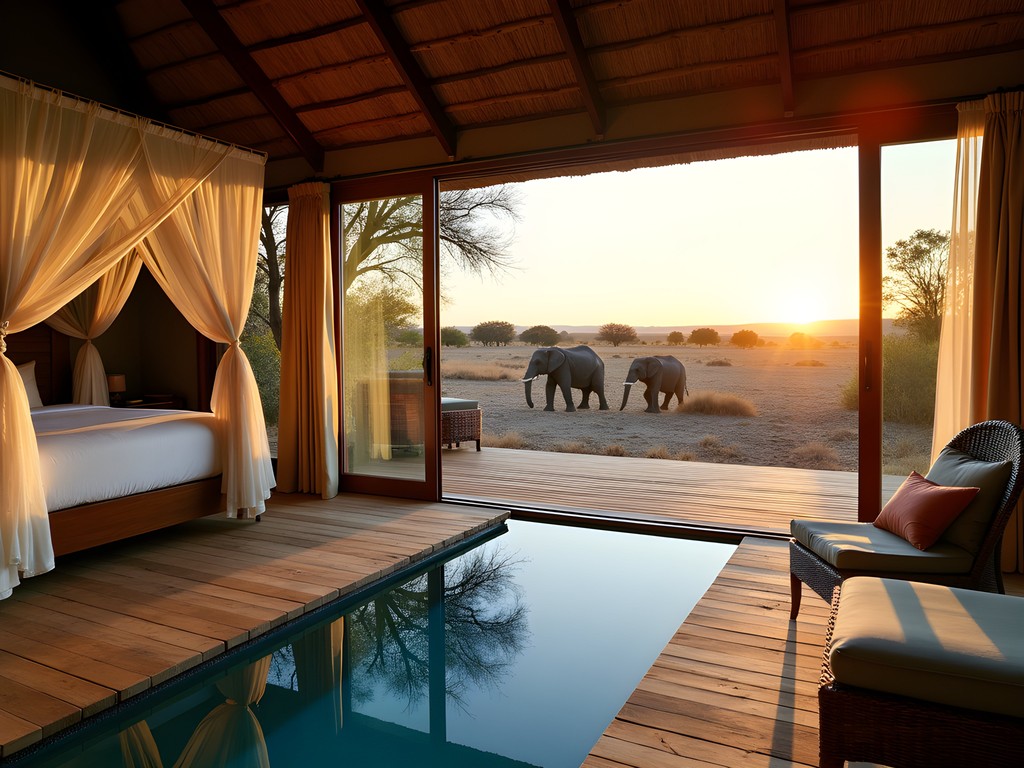
💡 Pro Tips
- Book at least 3 nights at each lodge to fully experience the property and surrounding area
- Pack a quality pair of binoculars - guides provide them, but having your own is worth it
- Request the same guide/tracker team throughout your stay for a more personalized experience
The Art of Luxury Safari Accommodation
The concept of luxury safari accommodation has evolved dramatically since my first visit to Africa nearly a decade ago. Today's premier Kruger lodges have transcended the colonial-era aesthetic to create spaces that honor local design traditions while delivering world-class comfort that rivals any urban five-star hotel.
At Singita Lebombo, my suite was a glass-walled loft perched like an eagle's nest on a cliff overlooking the N'wanetsi River. The design drew inspiration from the lightweight nests of indigenous weaver birds, creating a space that felt both cutting-edge and organic. The outdoor shower, suspended over the riverbed, offered perhaps the most spectacular bathing experience I've ever encountered—particularly when shared with a curious nyala antelope one morning.
What distinguishes these properties isn't just their design but their invisibility on the landscape. Despite their opulence, they sit lightly on the earth. At Londolozi Pioneer Camp, solar power, water recycling systems, and farm-to-table dining reflect a commitment to sustainability that feels genuine rather than performative.
The most memorable accommodations combine privacy with immersion. At Cheetah Plains in Sabi Sands, I stayed in a private villa with its own dedicated safari vehicle, guide, chef, and house staff. Rather than feeling ostentatious, this setup created a sense of home in the wilderness—a base for deeper connection to place. When a leopard killed an impala near our villa one night, our guide woke us at 4 AM for a private viewing of the scene before other vehicles arrived.
While the camera equipment I brought captured stunning images, many lodges now provide professional camera equipment for guests. At Singita, I borrowed a professional-grade camera body and 100-400mm lens at no extra charge, saving me from lugging heavy equipment across continents.
Perhaps the most meaningful luxury is found in the smallest details: hot water bottles tucked into your safari vehicle seat during chilly morning drives, a perfect cappuccino delivered to your door at your specified wake-up time, or returning from dinner to find your bath drawn with floating candles and a handwritten note about tomorrow's adventures.
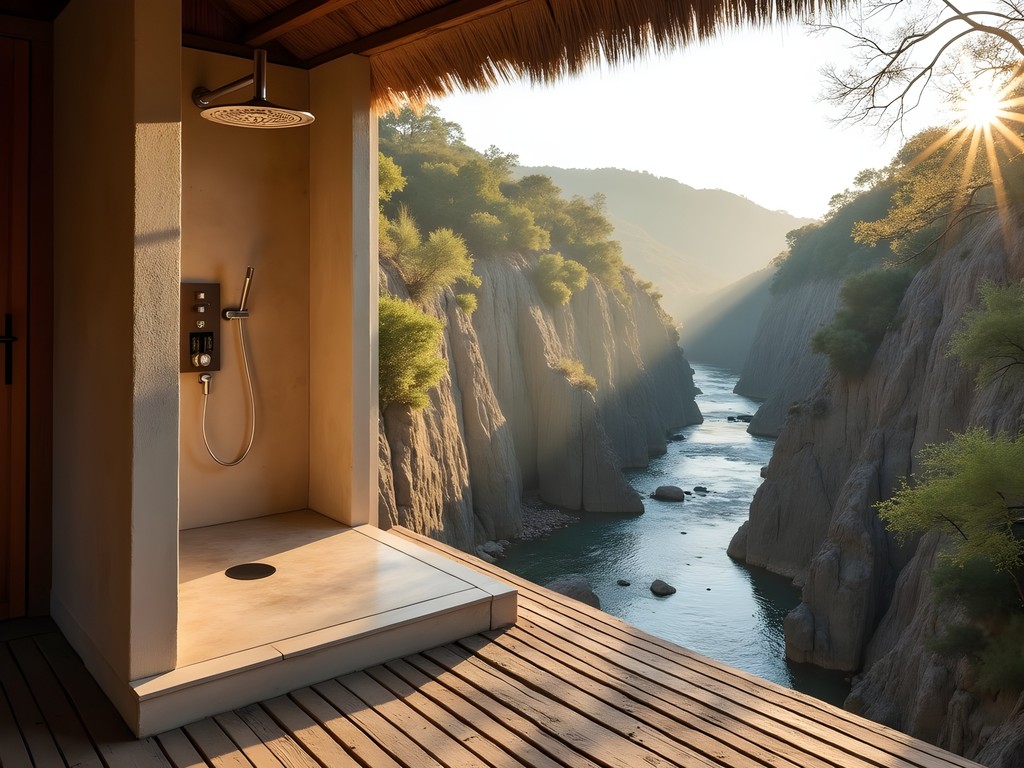
💡 Pro Tips
- Pack layers for game drives - mornings can be surprisingly cool even in warmer months
- Take advantage of the included laundry service at most luxury lodges to pack light
- Request a villa or room furthest from the main lodge area for the best wildlife viewing from your accommodation
Beyond Game Drives: Exclusive Safari Experiences
The truly exceptional luxury safari transcends the standard game drive routine to offer experiences that connect you more deeply with the landscape and its conservation. Throughout my two weeks in greater Kruger, these bespoke activities created the memories that will endure long after the wildlife sightings fade from memory.
At Singita, I participated in their exclusive anti-poaching demonstration, where I joined the K9 unit to understand how specially trained dogs help protect rhinos from poachers. Watching these remarkable animals work—and understanding how tourism dollars directly fund their operations—transformed how I view conservation success stories.
For those seeking perspective, helicopter safaris provide a breathtaking context impossible to grasp from the ground. Rising above Kruger with Royal Malewane's helicopter safari, I witnessed the vastness of the ecosystem and the critical wildlife corridors connecting protected areas. We landed on an inaccessible granite koppie (hill) for a champagne breakfast as the landscape awakened below—a moment of profound privilege and perspective.
The most meaningful experiences often involve community connection. Through Londolozi's relationship with local Shangaan communities, I spent a morning with a traditional healer learning about medicinal plants that have been used in the region for generations. This cultural exchange felt authentic rather than performative, offering genuine insight into how local communities have sustainably coexisted with wildlife for centuries.
For photography enthusiasts, specialized photographic safaris with dedicated vehicles equipped with swivel mounts and camera supports elevate wildlife photography to new levels. At Cheetah Plains, my private vehicle included built-in charging stations for equipment and a professional guide who was also an accomplished wildlife photographer, helping me finally capture the low-light images I'd been attempting for years.
Perhaps most memorable was a sleep-out experience at Singita Lebombo's remote star bed platform. After a private dinner, I spent the night on a luxurious bed rolled out onto a secure elevated platform, falling asleep to lions calling in the distance and the Milky Way wheeling overhead. I used my star tracking app to identify constellations from perspectives impossible to see in the light-polluted Northern Hemisphere.
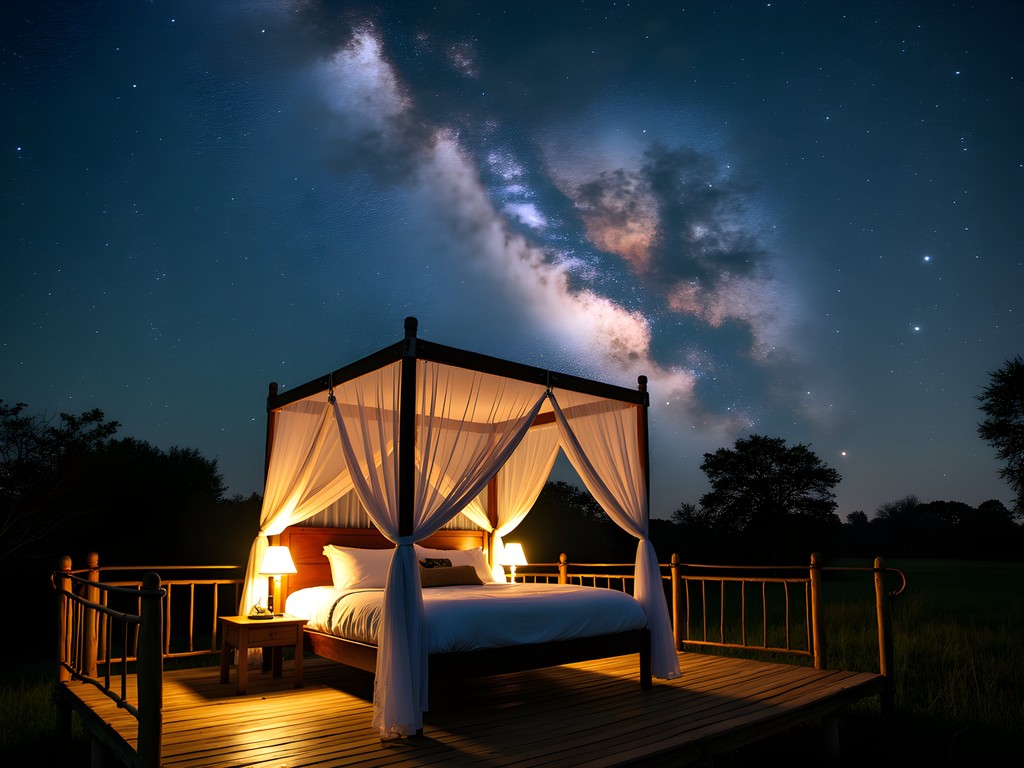
💡 Pro Tips
- Book specialty experiences well in advance as they have limited availability
- Consider splitting your stay between different reserves to experience diverse ecosystems
- Discuss any special interests with your lodge before arrival so they can tailor experiences to your passions
Conservation Through Luxury: The Ethical Dimension
As someone who has dedicated my professional life to conservation, I approach luxury safari experiences with a critical eye toward their environmental and social impact. What I've discovered in Kruger's private reserves is that the highest-end properties are often leading the most meaningful conservation initiatives—creating a virtuous cycle where exclusivity directly funds protection.
At Singita, which manages over 350,000 acres of African ecosystems, I spent a morning with their conservation team learning how the exorbitant nightly rates (starting around $2,500 per person) directly fund anti-poaching units, habitat restoration, and community development programs. Their transparent approach allows guests to see exactly how tourism dollars translate to conservation outcomes—including a 90% reduction in rhino poaching incidents within their reserves over the past five years.
Londolozi's 50-year commitment to restoring degraded land has transformed former cattle ranches into thriving wildlife habitat. Their sophisticated carbon-neutral operations include everything from solar power to gray-water recycling systems. Most importantly, they've created a model where luxury tourism provides sustainable livelihoods that make wildlife more valuable alive than dead to surrounding communities.
The most forward-thinking lodges are also investing in the next generation of conservationists. At Sabi Sabi, I visited their environmental education center where children from nearby communities learn about ecology and conservation careers. Many of today's guides and trackers began as participants in these programs, creating a sustainable pipeline of conservation leadership.
For travelers concerned about carbon footprints, many premium lodges now offer comprehensive carbon offset programs. I particularly appreciated Royal Malewane's approach, which calculates the emissions from your entire journey (including international flights) and invests in local renewable energy projects to offset them.
Perhaps most encouraging is seeing how these luxury properties are abandoning single-use plastics and embracing sustainable practices without compromising guest experience. My reusable water bottle was constantly refilled with filtered water, eliminating dozens of plastic bottles during my stay.
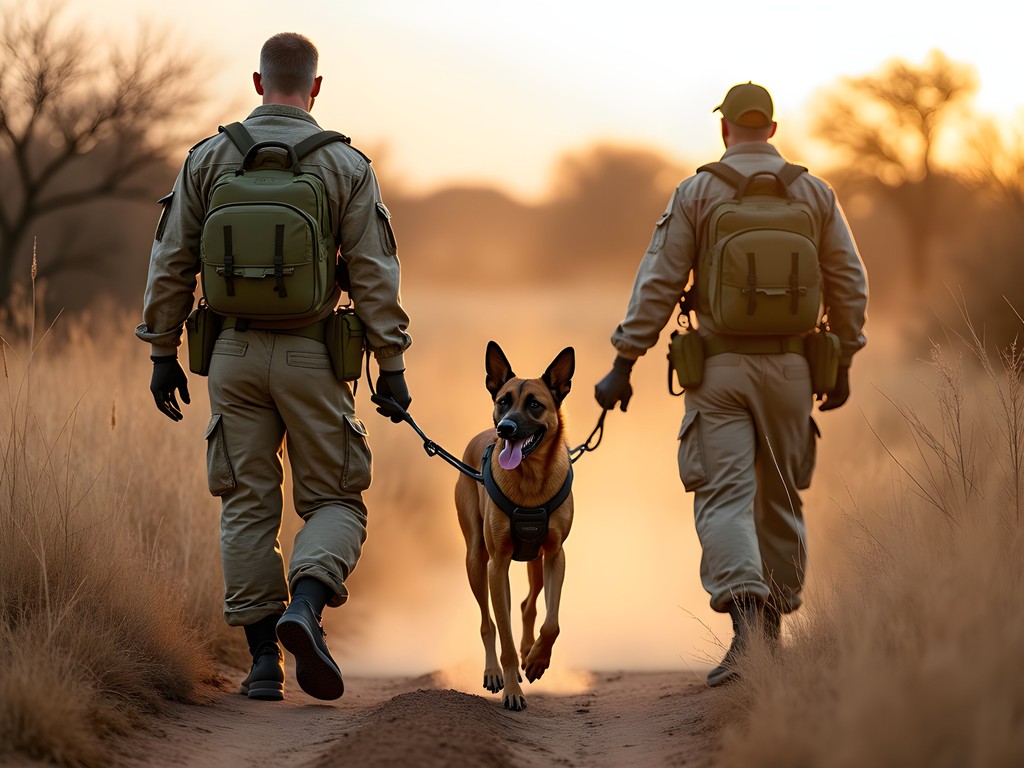
💡 Pro Tips
- Ask specific questions about how your tourism dollars support conservation
- Request to meet with conservation staff to learn about current projects
- Consider adding a direct donation to the lodge's conservation foundation to support specific initiatives
Crafting Your Own Ultra-Luxury Kruger Itinerary
Planning the perfect luxury safari requires balancing exclusivity with authenticity, comfort with meaningful wilderness connection. After multiple visits to the greater Kruger ecosystem, I've refined an approach that maximizes both wildlife experiences and luxurious rejuvenation.
I recommend a minimum 10-day itinerary split between at least two different private reserves. Begin with 4-5 nights in the Sabi Sands, renowned for having the world's highest density of leopards and exceptional Big Five viewing. The western section (where Singita and Londolozi are located) offers more exclusive traversing rights and fewer vehicles.
Follow this with 3-4 nights in either Timbavati or Thornybush for a different ecosystem and wildlife community. The northern reserves tend to have more dramatic landscapes and fewer lodges, creating a more remote wilderness feeling. I particularly value the walking safari traditions in Timbavati, where guides are trained in the fine art of approaching dangerous game on foot.
For those seeking absolute exclusivity, consider adding several nights at one of the private concessions within Kruger National Park itself, such as Singita Lebombo or The Outpost. These offer the vastness of Kruger combined with the privacy of exclusive traversing rights.
Logistically, the most seamless approach is flying directly from Johannesburg to the lodge airstrips via Airlink or Federal Air. While more expensive than driving, this maximizes your time in the wilderness and offers spectacular aerial views of the landscape. Most luxury lodges include these transfers in their packages.
For photographers, I cannot overstate the value of bringing proper equipment. My telephoto zoom lens captured intimate wildlife portraits impossible with standard lenses. Many lodges now offer specialized photographic vehicles with bean bags, gimbals, and charging stations—request these when booking if photography is a priority.
Finally, consider including a conservation experience as part of your itinerary. Whether participating in rhino conservation monitoring, visiting community development projects, or joining researchers for wildlife collaring operations, these experiences transform a luxury vacation into something more meaningful. The Singita Conservation Partner Program and Londolozi's Tracking Academy offer particularly impactful opportunities to engage with conservation professionals.
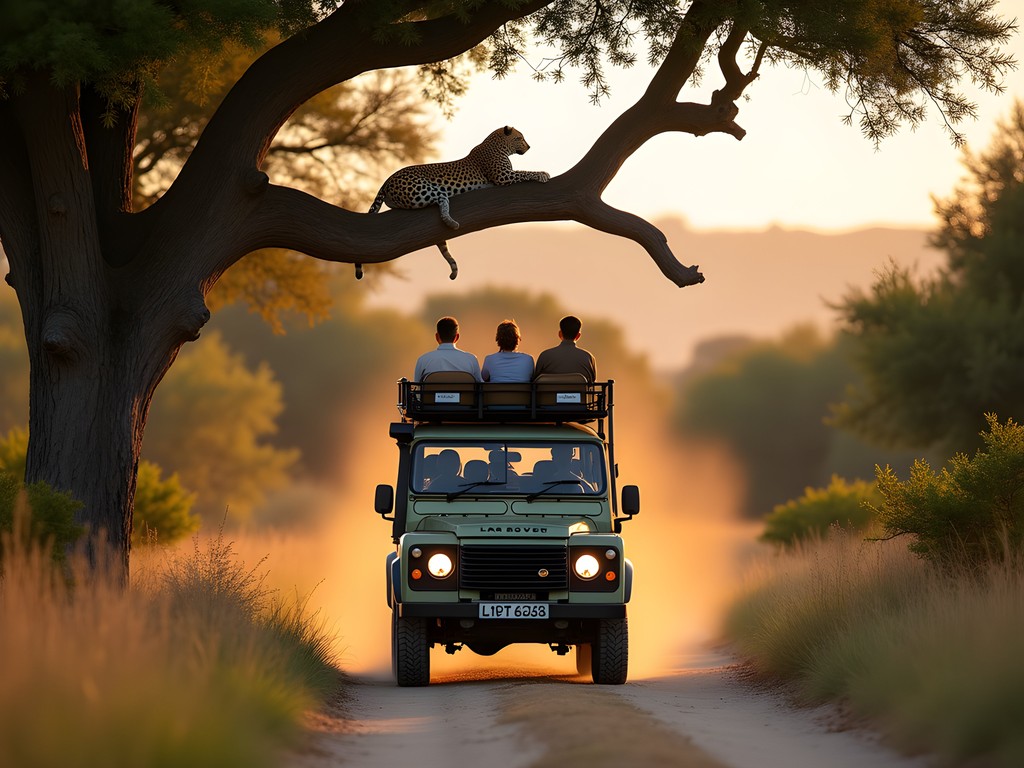
💡 Pro Tips
- Book at least a year in advance for peak season (May-September) at top lodges
- Consider the shoulder seasons (April or October) for excellent wildlife viewing with lower rates
- Request the same guide throughout your stay for a more personalized experience
Final Thoughts
As our final game drive concluded and the Land Rover crested a rise overlooking the vast expanse of bushveld bathed in sunset light, I found myself reflecting on the true nature of luxury in our increasingly disconnected world. Perhaps the greatest privilege isn't found in thread counts or wine lists, but in moments of profound connection to the wild spaces that shaped our species. What makes Kruger's ultra-luxury experiences truly exceptional is how they've transcended mere indulgence to become vehicles for conservation, creating a model where exclusivity directly funds protection. By choosing these experiences mindfully, we participate in a virtuous cycle that preserves these ecosystems for future generations. The leopard you watch hunt by spotlight, the rhinos your presence helps protect, the ancient knowledge your visit helps preserve—these are the true luxuries of our time, available to those fortunate enough to experience them, but benefiting all through their continued existence.
✨ Key Takeaways
- The private reserves bordering Kruger offer the most exclusive wildlife experiences with fewer vehicles and off-road access
- True luxury safari accommodations balance opulence with sustainability and minimal environmental impact
- Beyond game drives, specialized experiences like walking safaris and sleep-outs create the most memorable connections to the landscape
- The highest-end properties often lead the most meaningful conservation initiatives, creating direct impact through tourism
📋 Practical Information
Best Time to Visit
May through September (dry winter season)
Budget Estimate
$1,500-3,000 per person per night all-inclusive
Recommended Duration
10-14 days
Difficulty Level
Easy

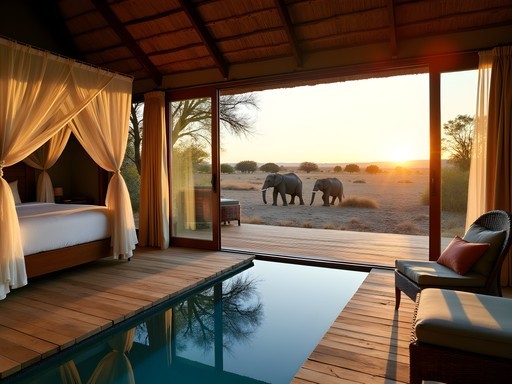
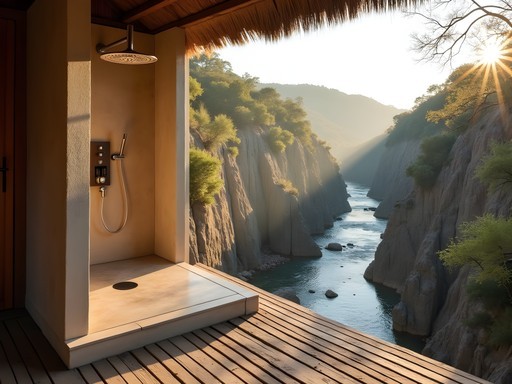
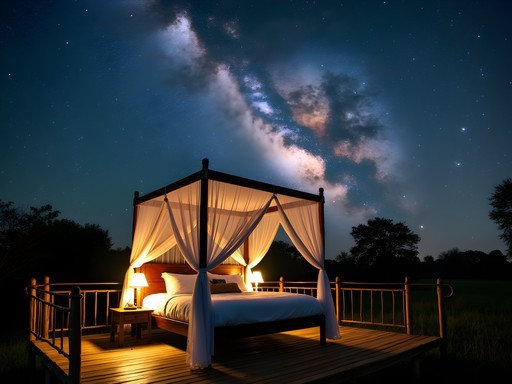
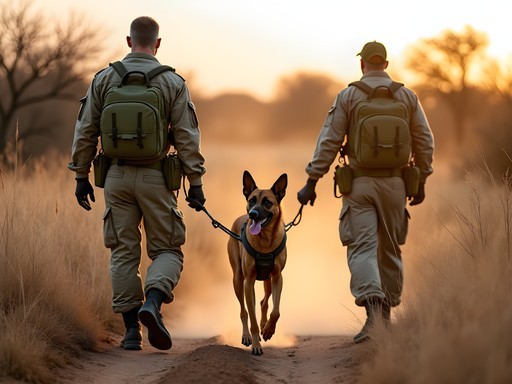
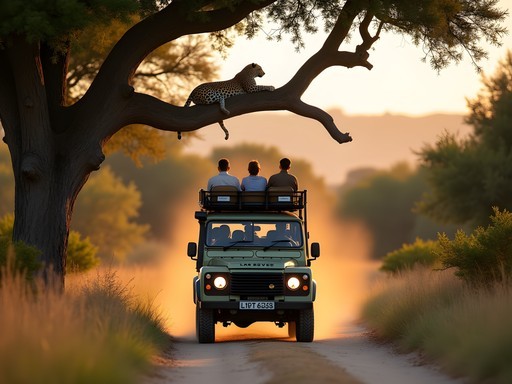


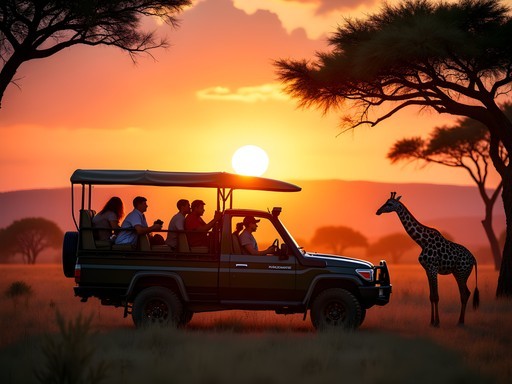
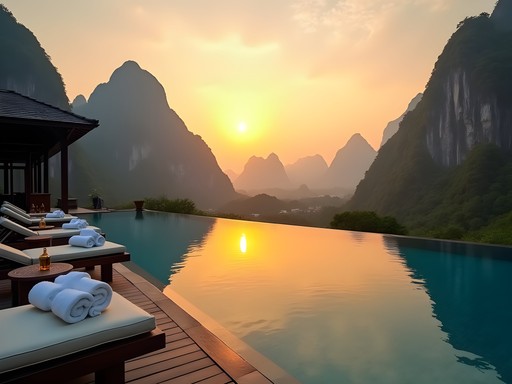
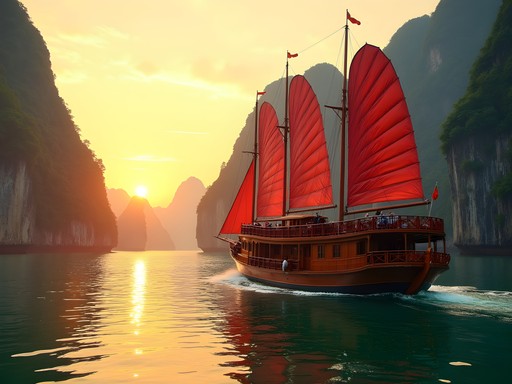
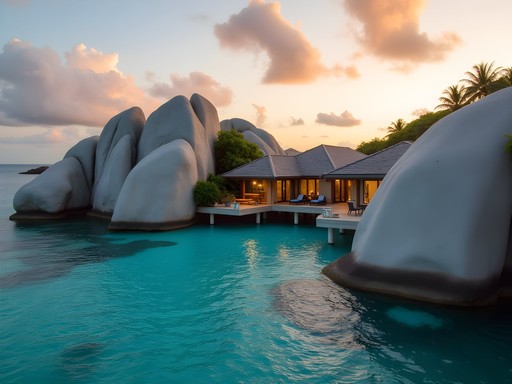
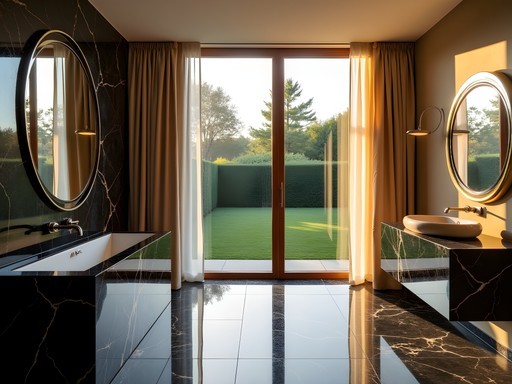
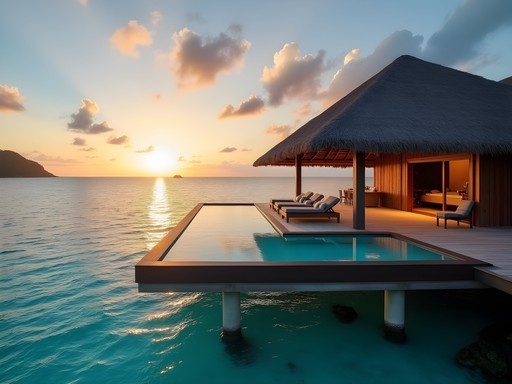
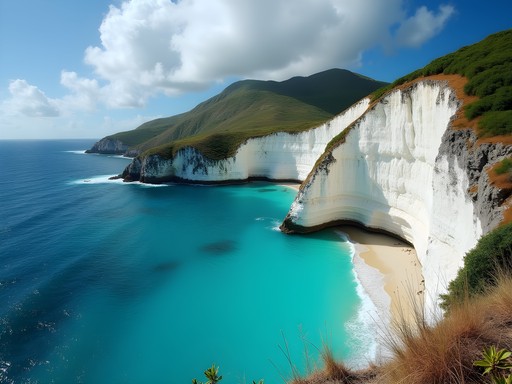
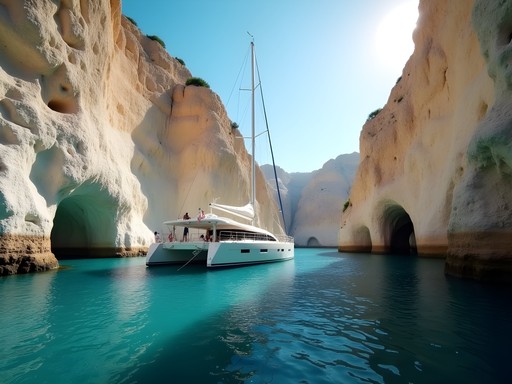
Comments
mountainbackpacker
That leopard shot is absolutely stunning!! 😍
Sarah Powell
Great writeup, Hayden. I visited Sabi Sands back in 2023 and it completely changed my perspective on safari experiences. The private reserves really do offer something special - the ability to go off-road and the lower vehicle density makes such a difference for photography and intimate wildlife encounters. I'm curious about your thoughts on the best time to visit for first-timers? I went in July (dry season) which was excellent for game viewing, but I've heard the green season has its own advantages despite the rain. Would love to hear what you'd recommend.
wanderlover
Going there next April! Hope that's a good time
luckywalker
This sounds amazing but probably way out of my budget lol. Are there any more affordable options in Kruger that still give you good wildlife viewing?
mountainbackpacker
Yes! The public camps in Kruger are actually really good and SO much cheaper. Stayed at Satara and Lower Sabie last year and saw tons of wildlife. You can self-drive which makes it even more affordable. The private lodges are next level luxury but the main park is amazing too!
luckywalker
Oh that's good to know! Thanks
wanderlover
Wow this looks incredible! Definitely bucket list material
sunsetwanderer
This looks incredible but probably way out of my budget. Are there any mid-range options that still offer a good private reserve experience? Or is it worth saving up for the full luxury experience?
Hayden Butler
Great question! There are definitely mid-range options in some of the private reserves. Look into places like Arathusa or Kambaku Safari Lodge. They offer the same traversing rights and wildlife experience but with more modest accommodations. That said, if you can save up for at least 2-3 nights at one of the premium lodges, the all-inclusive nature and exceptional service make it a special experience.
sunsetwanderer
Thanks so much! I'll look into those options. Maybe a split stay could work - a few nights at a mid-range place and then splurge for the finale!
mountainzone
Great write-up! We stayed at Singita Lebombo last year and the architecture blew me away - those glass-walled suites perched on the cliff face made me feel like I was floating above the N'wanetsi River. Worth mentioning that the shoulder seasons (April-June and September-November) offer better value while still delivering amazing wildlife viewing. The conservation efforts these premium lodges fund are impressive too - our guide showed us how their anti-poaching unit uses drone technology to protect rhinos. The farm-to-table food was another highlight - eating gourmet meals under baobab trees while elephants drink at the river below is something I'll never forget!
Marco Flores
Your post transported me back to my first Kruger experience! I still remember the moment our tracker spotted fresh leopard prints crossing the road at dawn. The anticipation as we followed the trail through the bush, everyone silent, scanning the trees. Then that heart-stopping moment when we spotted the flick of a tail hanging from an acacia branch. Pure magic! I've found the private walking safaris to be the most transformative experience though - there's something about being on foot in big cat country that reconnects you to our primal roots. Did you try any walking safaris during your stay?
Hayden Butler
I did, Marco! Absolutely agree - walking safaris completely change your perspective. Being at eye-level with a giraffe or following elephant tracks on foot is humbling in a way vehicle safaris can't match. Our armed guide's knowledge of the smallest plants and insects was just as impressive as tracking the big game.
Jean Wells
Excellent analysis of the private reserve experience versus the main Kruger Park. Having visited both multiple times over the past decade, I've observed the significant ecological differences between them. The controlled visitor numbers in private concessions not only enhance the guest experience but demonstrably benefit wildlife behavior patterns. I particularly appreciated your mention of the conservation fees - many travelers don't realize that luxury lodges often contribute substantially to anti-poaching efforts and community development. I've found that using a quality pair of binoculars makes all the difference, especially for bird enthusiasts. The ethical dimension section was particularly insightful - balancing exclusivity with conservation is indeed the future of sustainable safari tourism.
islandpro
Wow, that leopard sighting sounds magical! Lucky you!
oceanzone
Great post! I'm planning a honeymoon safari next year. Which lodge would you recommend for the best balance of luxury and authentic experience? Budget is flexible but not unlimited.
mountainzone
Not Hayden, but we loved Londolozi for our honeymoon. Perfect mix of luxury and authentic bush experience. The private plunge pools overlooking the savanna were incredible. Worth the splurge for a honeymoon!
Venture X
Premium card with 2X miles, $300 travel credit, Priority Pass